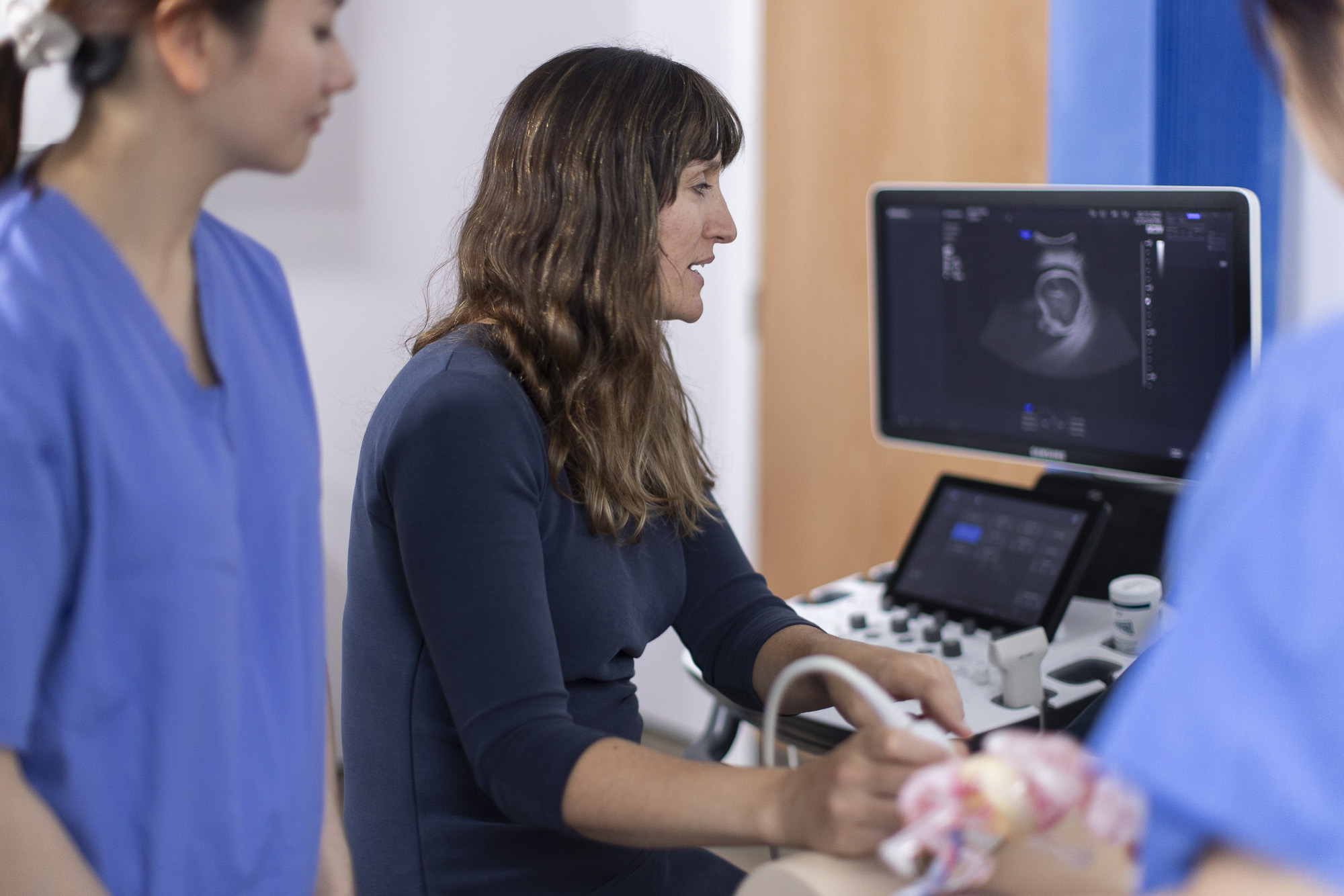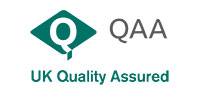Overview
Medical Ultrasound has become an essential part of investigative healthcare, used to support a variety of medical professionals including radiographers, physiotherapists, chiropractors, podiatrists, nurses, midwives and doctors.
This postgraduate degree course will give you an understanding of the science and instrumentation of ultrasound to produce optimum images, with safety and quality assurance to make sure you lead with best practice.
Developed by experts from the University’s School of Health and Rehabilitation Sciences our course has been created to be part-time, so you can gain your new qualification while you work. You’ll be taught by actively practising practitioners and highly-qualified academic staff, through professional development, experiential learning and reflective practice, tutorials, workshops, practical clinical skills classes, seminars, small group work, and lectures.
Course Structure
The course consists of three progressive levels, with an exit qualification at the end of each if you want to finish early, allowing you to tailor a learning experience that’s right for you.
Some of our units are available to study as standalone units which means you do not have to enrol onto the full course. Stand alone units are available for those that meet the pre-requisites of the unit. If there is a particular unit you would like to study as a standalone unit, please use the contact form below.
For general questions on the Medical Ultrasound qualification or to register your interest in the course, please use the contact form below.
MSc Medical Ultrasound is available to study predominantly based in either Central London or Bournemouth. Though it is important to note that some specialist units of study are only available to study in one location, so might involve travel for those specific units.
Please note: This course is currently pending CASE validation.
Course Details
The MSc Medical Ultrasound programme can be studied at PgCert, PgDip or MSc level. Stand alone units are also available for those who meet pre-requisites of the unit. The course has been developed by experts from HSU, and will give you the specialist knowledge, plus all the advanced clinical and practical skills needed for ultrasound practice.
With our expertise you will develop an understanding of the science and instrumentation of ultrasound in order to produce optimum images, with safety and quality assurance to make sure you lead with best practice. You’ll be taught by actively practising practitioners and highly-qualified academic staff, who will guide you on your educational journey through professional development, experiential learning and reflective practice, tutorials, workshops, practical clinical skills classes, seminars, small group work, and lectures. Private study will form a significant part of your learning; reading and researching and preparing presentations and assignments, spending roughly an average of 8 hours per week study time.
Students are required to have a minimum of 14 hours per week in clinical placement to meet the programme requirements.
Applications for supervised clinical placements within the onsite ultrasound clinic at HSU have now closed for 25/26, the next intake will be for the academic year 26/27.
The team warmly welcome applications from students who have an external clinical placement, and for those wishing to undertake non clinical specialist units.
We recommend that you don’t take on more than 40 credits a year in one of our clinical application units due to the practical-skills workload involved. We want to make sure that you are comfortable and able to complete the workload that you take on at a reasonable pace.
To get a picture of the curriculum check out a list of units below, or should you need more information about each module’s aims, content and assessment structure, just take a look at our Course Specification.
Please Note: Overseas Students requiring a Student Visa to undertake the MSc Medical Ultrasound course should note that Health Sciences University is not able to sponsor them, and will therefore not be able to consider them for a place of study. More information on permission to study in the UK can be found on our Visas and Immigration page.
For more information about this course, please read the specification below:
MSc/PGDip/PGCert Medical Ultrasound – Course Specification
Unit Breakdown
Year 1 - PgCert Stage 
You have control over what units to take. All units have Level 7 Credits assigned to them. You will need to pick units that total 60 Level 7 Credits for the PgCert. Along with completing the mandatory unit Science and Instrumentation of Ultrasound (20 credits), you’ll be able to select from a series of skills-based and non-skills based units to make up the remaining 40 credits. At least one of the optional units selected must be from the Optional Ultrasound Skills-based units list.
Core units
- MUS7001 – Science and Instrumentation (20 credits)
Optional units
- MUS7002 – Upper Limb Ultrasound (20 credits)
- MUS7003 – Lower Limb Ultrasound (20 credits)
- MUS7045 – Soft Tissue Ultrasound (20 credits)
- MUS7006 – Gynaecology Ultrasound (20 credits)
- MUS7008 – Obstetrics 1st Trimester (20 credits)
- MUS7007 – Obstetrics 2nd Trimester (20 credits)
- MUS7015 – Obstetric 3rd Trimester (20 credits)
- MUS7005 – Abdominal Ultrasound (20 credits)
- MUS7057 – Head and Neck Ultrasound (20 credits)
- MUS7058 – Testicular Ultrasound (20 credits)
- MUS7059 – Negotiated Vascular Ultrasound I (20 credits)
- MUS7060 – Negotiated Vascular Ultrasound II (20 credits)
- MUS7061 – Negotiated Vascular Ultrasound III (20 credits)
- MUS7062 – Negotiated Vascular Ultrasound IV (20 credits)
- MUS7047 – MSK Guided Injections (20 credits)
- MUS7055 – Ultrasound Guided Fine Needle Aspiration (20 credits)
- MUS7056 – Interventional Gynaecology Ultrasound (20 credits)
- MPH7008 – Professional Development (20 credits)
- MPH7009 – Leadership and Interprofessional Working (20 credits)
- MPH7005 – Evidence Based Practice (20 credits)
Year 2 - PgDip Stage 
For the PgDip Stage of your degree, you get to choose from any of the units that you did not complete during the previous PgCert Stage (Year 1). All units have M Level Credits assigned to them. You’ll need to pick units that total 60 M Level Credits for the PgDip.
Core units
- MUS7001 – Science and Instrumentation (20 credits)
Optional units
- MUS7002 – Upper Limb Ultrasound (20 credits)
- MUS7003 – Lower Limb Ultrasound (20 credits)
- MUS7045 – Soft Tissue Ultrasound (20 credits)
- MUS7006 – Gynaecology Ultrasound (20 credits)
- MUS7008 – Obstetrics 1st Trimester (20 credits)
- MUS7007 – Obstetrics 2nd Trimester (20 credits)
- MUS7015 – Obstetric 3rd Trimester (20 credits)
- MUS7005 – Abdominal Ultrasound (20 credits)
- MUS7057 – Head and Neck Ultrasound (20 credits)
- MUS7058 – Testicular Ultrasound (20 credits)
- MUS7059 – Negotiated Vascular Ultrasound I (20 credits)
- MUS7060 – Negotiated Vascular Ultrasound II (20 credits)
- MUS7061 – Negotiated Vascular Ultrasound III (20 credits)
- MUS7062 – Negotiated Vascular Ultrasound IV (20 credits)
- MUS7047 – MSK Guided Injections (20 credits)
- MUS7055 – Ultrasound Guided Fine Needle Aspiration (20 credits)
- MUS7056 – Interventional Gynaecology Ultrasound (20 credits)
- MPH7008 – Professional Development (20 credits)
- MPH7009 – Leadership and Interprofessional Working (20 credits)
- MPH7005 – Evidence Based Practice (20 credits)
Year 3 and 4 - Masters Stage 
For your final stage of the MSc Medical Ultrasound, you can pick between two unit groups. Research Methods and Dissertation or Audit Methods and Clinical Audit.
Core units
- MUS7001 – Science and Instrumentation (20 credits)
- PSY7001 Research Methods (20 credits)
- MUS7065 Dissertation (40 Credits) OR
- PPR7008 Service Improvement Project (40 Credits)
Optional units
- MUS7002 – Upper Limb Ultrasound (20 credits)
- MUS7003 – Lower Limb Ultrasound (20 credits)
- MUS7045 – Soft Tissue Ultrasound (20 credits)
- MUS7006 – Gynaecology Ultrasound (20 credits)
- MUS7008 – Obstetrics 1st Trimester (20 credits)
- MUS7007 – Obstetrics 2nd Trimester (20 credits)
- MUS7015 – Obstetric 3rd Trimester (20 credits)
- MUS7005 – Abdominal Ultrasound (20 credits)
- MUS7057 – Head and Neck Ultrasound (20 credits)
- MUS7058 – Testicular Ultrasound (20 credits)
- MUS7059 – Negotiated Vascular Ultrasound I (20 credits)
- MUS7060 – Negotiated Vascular Ultrasound II (20 credits)
- MUS7061 – Negotiated Vascular Ultrasound III (20 credits)
- MUS7062 – Negotiated Vascular Ultrasound IV (20 credits)
- MUS7047 – MSK Guided Injections (20 credits)
- MUS7055 – Ultrasound Guided Fine Needle Aspiration (20 credits)
- MUS7056 – Interventional Gynaecology Ultrasound (20 credits)
- MPH7008 – Professional Development (20 credits)
- MPH7009 – Leadership and Interprofessional Working (20 credits)
- MPH7005 – Evidence Based Practice (20 credits)
Entry Requirements
What qualifications do I need? 
What qualifications do I need?
You’ll need a recognised professional qualification or a first degree in a relevant healthcare subject (minimum 2:2). Examples of these are; General Medicine, Physiotherapy, Radiography, Osteopathy, Chiropractic, Sports and Exercise Medicine, Nursing. Together with registration from a professional body e.g. GMC, NMC, HCPC etc.
If you have an undergraduate degree that’s not listed, it may still be considered. Talk to Admissions team by completing the form below or call them on 01202 436200.
Is there anything else that is required? 
Is there anything else that is required?
When you apply you should also include a Clinical Workplace Agreement (completed by the workplace supervisor/mentor, if they require this as a word.doc please ask them to email admissions@aecc.ac.uk), just to make sure you can meet all the clinical requirements of the course. A limited number of placements are available at the School of Radiology should you be interested; please contact admissions for further details and this will be reviewed by the Course Team. Please note that this is charged at an additional cost to the course fee. Speak with our School of Radiology team for prices, dates, and further details.
If you live in the UK, we may need a satisfactory Disclosure and Barring Service (Enhanced DBS) check*. It’s standard for all UK students and we’ll be there to guide you through the process once you’ve applied.
*DBS requirement only applies to MSc Medical Ultrasound students who are undertaking a placement at an Health Sciences University on-site clinic.
Find our Place agreement document on our Statements & Agreements page.
How do I apply? 
How do I apply?
Applications for MSc Medical Ultrasound are now open, please follow the above ‘Apply Now’ button to our application portal.
If you’re not sure about anything listed here, talk to our Admissions team on the form below or call us on 01202 436200 and we’ll be happy to answer any questions you have.
For more information about our admissions policies and procedures, including our Admissions Complaints and Appeals Policy, see latest policies.
Please Note: Applications are now open for September 2025 entry to this course. Places are limited and we encourage you to apply by 24 August 2025 to ensure your application is considered. International applicants should apply by 25 July 2025.
International Students 
International Students
If your qualification is not listed here, please take a look at our international entry requirements page or get in touch with our admissions team on the form below. Please note, to be accepted onto this course; you will also need to demonstrate that you meet the minimum standards of English. More information on permission to study in the UK, can be found on our Visas and Immigration page.
English Language Requirements
Applicants whose first language is not English and who are required to provide a language test certificate as evidence of their proficiency must ensure that it is, or is comparable to, IELTS level 7.0 with no element below 6.5.
Please Note: Overseas Students requiring a Student Visa to undertake the MSc Medical Ultrasound course should note that Health Sciences University is not able to sponsor them, and will therefore not be able to consider them for a place of study. More information on permission to study in the UK can be found on our Visas and Immigration page.
Still have questions about applying?
Course Fees
Our current entry course costs for the MSc Medical Ultrasound part time course are per annum and are shown below.
UK/ROI/Channel Islands
2024/25
- Yearly fees are based on the number of credits that you wish to undertake per academic year. 60 credit points (3 x 20 credit units) the fee would be £4,104 per annum.
2025/26
- Yearly fees are based on the number of credits that you wish to undertake per academic year. 60 credit points (3 x 20 credit units) the fee would be £4,302 per annum.
International
2024/25
- Yearly fees are based on the number of credits that you wish to undertake per academic year. 60 credit points (3 x 20 credit units) the fee would be £6,840 per annum.
2025/26
- Yearly fees are based on the number of credits that you wish to undertake per academic year. 60 credit points (3 x 20 credit units) the fee would be £7,182 per annum.
Please note: These fees are for the 2025-26 academic year only and may be subject to increase in subsequent years of study. Any increase will be in line with our Tuition Fees Policy but will not be more than 5%.
Note: For students to be eligible for funding from Student Finance England, they must be studying on an eligible course at a provider registered with the Office for Students (OfS). Health Sciences University is registered with the OfS. View the register and search for Health Sciences University.
Additional course costs
Your tuition fees will cover the cost of all mandatory elements of your course. There are additional course related costs that are not included in the tuition fees, including details of the fees for clinical placements undertaken. You will need to budget for theses costs when you plan your spending.
For more information see Additional Costs page.
Visit our student finance pages for more information on:
Register your Interest
Register your Interest / Enquiry 
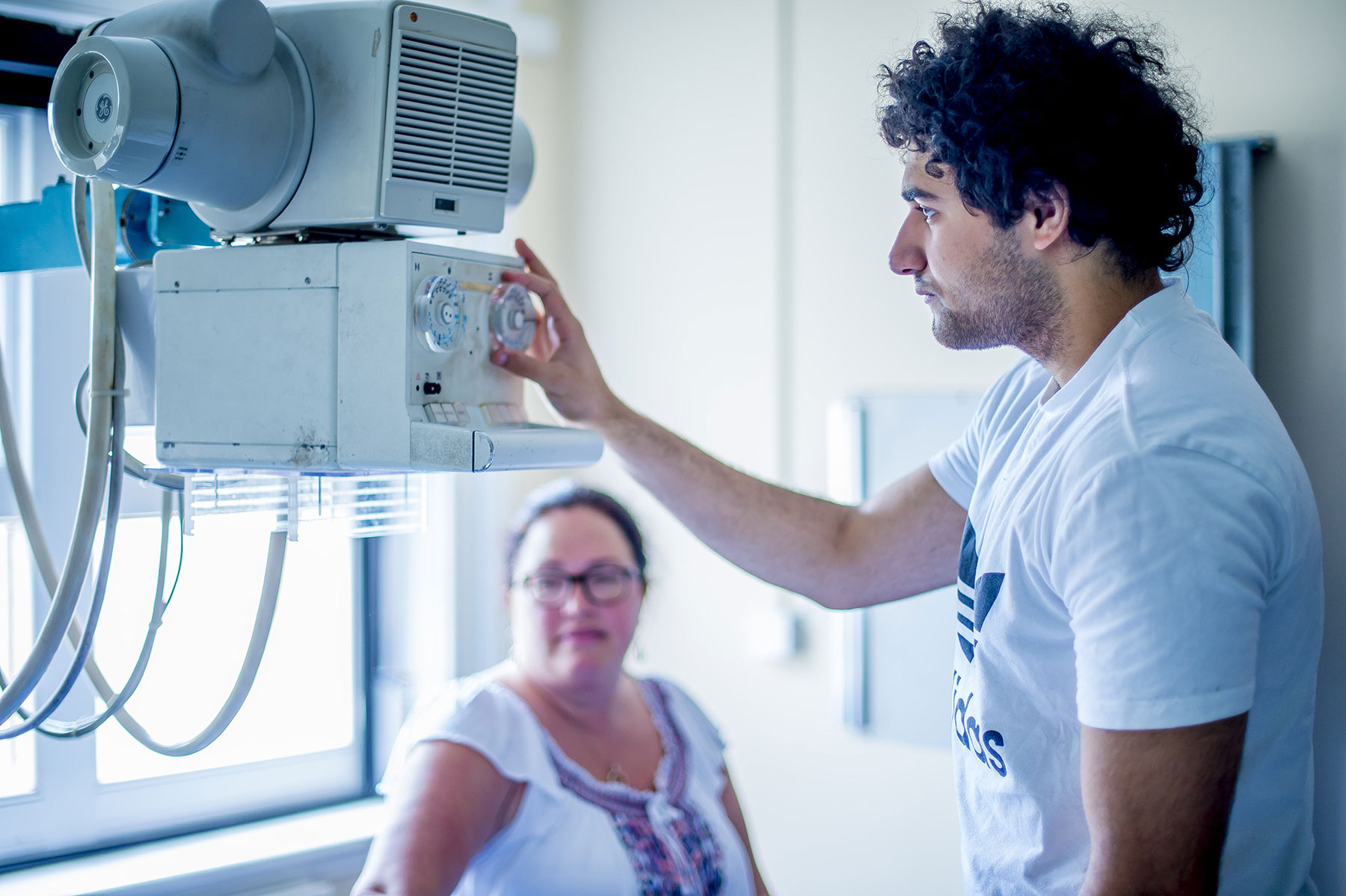
Why choose Health Sciences University
There are many benefits to studying at Health Sciences University, from our expertise and history in teaching health sciences, to our state-of-the-art facilities, on-site clinical training, and of course our location on the beautiful Bournemouth coast.
Latest News
Discover and read all the latest news, press releases and happenings here at Health Sciences University.

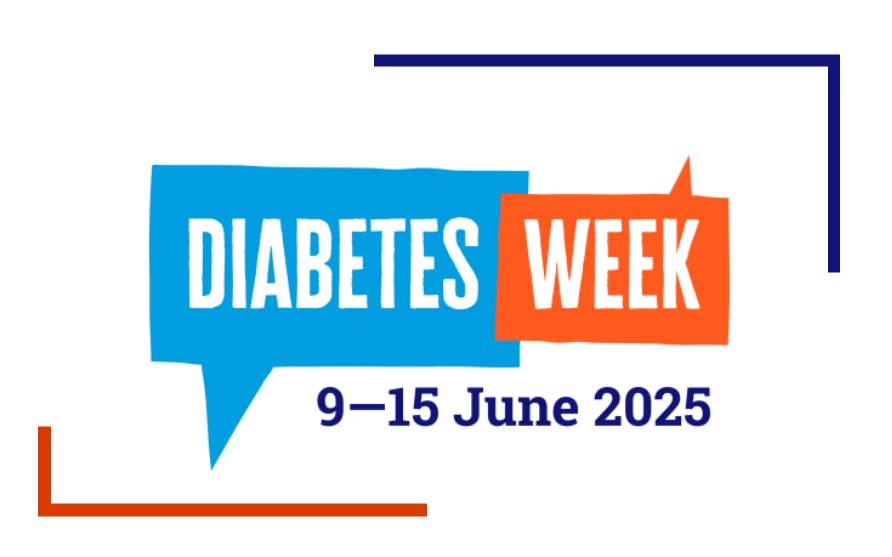
Diabetes affects foot health. Learn why checks matter and how HSU trains podiatry students to prevent complications.
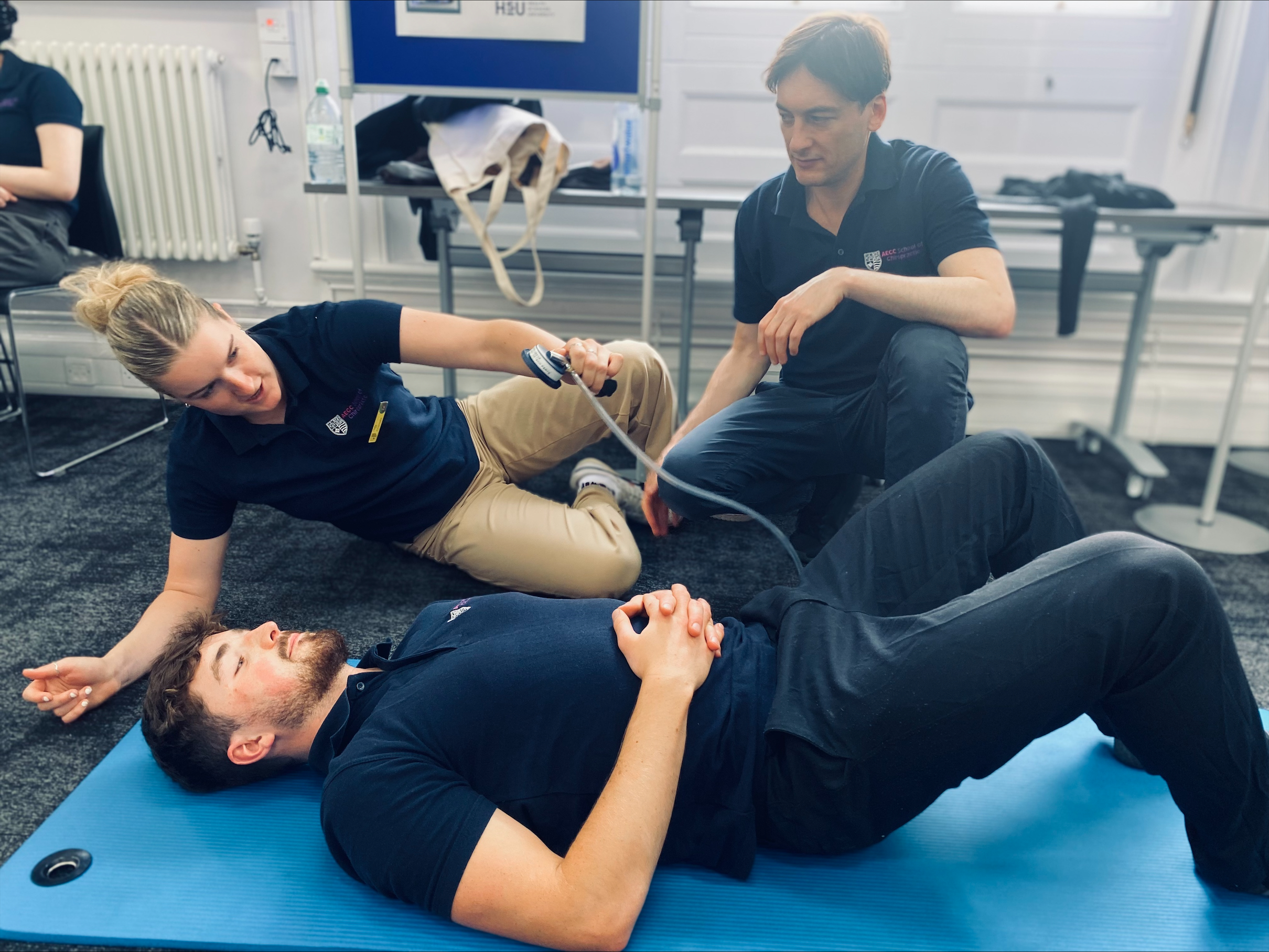
First-ever student-led Sports Placement Symposium celebrates clinical excellence, peer learning, and innovation in chiropractic education.

An immersive pilot week brought together 110 students from five allied health professions to collaboratively explore stroke care through simulation-based interprofessional learning, strengthening teamwork and patient-centred care skills.

HSU podiatry students supported runners at the 2024 TCS London Marathon, gaining real-world experience in foot care and injury treatment.
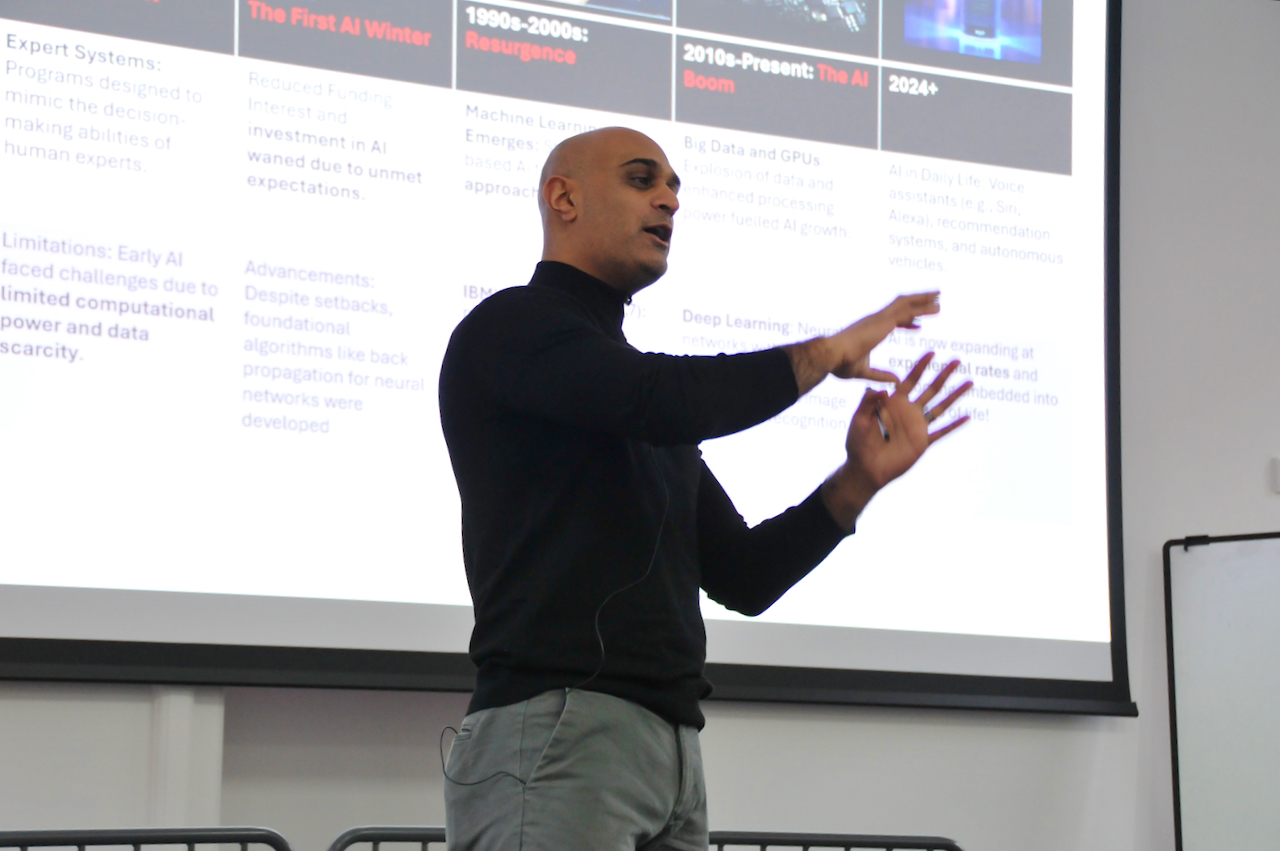
We were proud to deliver a ground breaking and first of its kind session on AI and Digital Technologies in Physiotherapy and Healthcare to our final-year physiotherapy students.
